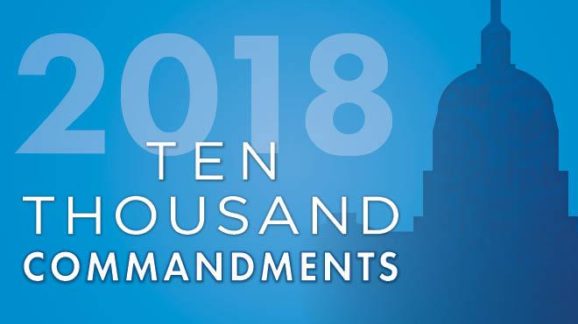Lessons for Congress from ‘10,000 Commandments’: Regulatory Budgets

One of the lessons learned from this year’s “10,000 Commandments” study is that Congress needs to be more involved in the regulatory process. It needs to make sure that agencies only regulate when legislation tells them to, and it needs to vet major new regulations. Over at USA Today, study author Wayne Crews and I make the case that Congress should also establish an annual regulatory budget:
Just as the federal government releases an annual spending budget, an annual regulatory budget would allow each federal agency a certain amount of costs that they could impose on American businesses and consumers. This would force agencies to prioritize rules that are efficient and effective, and ditch rules that are outdated, burdensome or fail to accomplish their goals.
As it is now, agencies largely police themselves, allowing them to get away with number-fudging and skewed assumptions without adequate oversight or accountability. To date, Congress has been unwilling to step in, preferring to blame unelected agencies when a regulation is unpopular or controversial. A regulatory budget would restore some accountability to agency behavior, while allowing Congress to set the rules of the road.
See the full article here. And read the brand new “10,000 Commandments” for 2018 here.